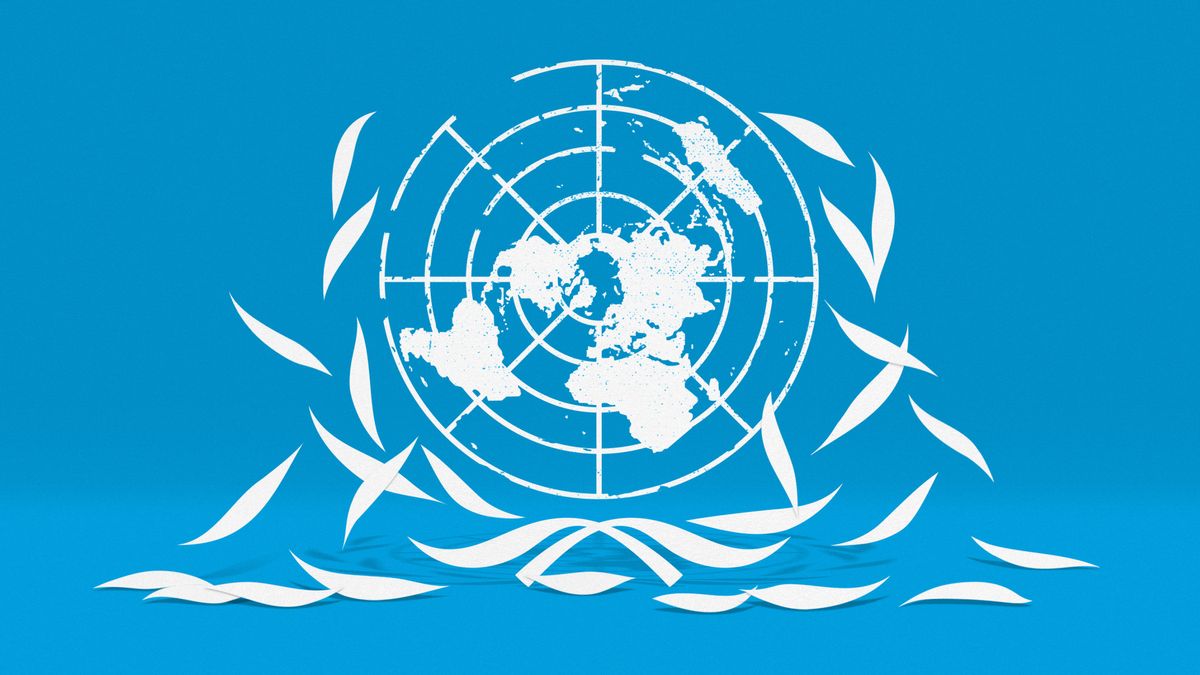The recent announcement of a new international treaty to protect the world’s oceans has brought attention to the need for effective ocean governance. As a leading research institution in marine science, UC San Diego, more specifically the Scripps Institution of Oceanography, has a unique opportunity to play a significant role in shaping this ocean administration and ensure a sustainable future for our oceans.
The new treaty, known as the High Seas Treaty, strives to establish a framework for the conservation of marine biodiversity in areas beyond national jurisdiction, known as the “high seas,” which make up more than 64% of the ocean. The treaty aims to place 30% of the high seas into protected areas by 2030, which is a huge step forward from the 1982 Law of the Sea Convention which only protected 1.2% of the high seas. The high seas — which cover about half of the planet — were “essentially the Wild West” until now. With such little regulation or oversight, the ocean and its inhabitants were made vulnerable to pollution, overfishing, and more man-made destruction.
The High Seas Treaty, announced on March 5, has four main objectives:
- To establish large-scale marine protected areas, which would be “the ocean’s equivalent of a Grand Canyon or Yellowstone National Park”
- To regulate access and benefit sharing from marine genetic resources
- To make international waters research more inclusive, which would aid coastal developing countries in tapping into the “blue economy”
- To set global standards for environmental impact assessments on commercial activities in the ocean
Such bold goals (with the target for fulfillment by 2030) arouse questions as to how the 193 countries in the United Nations will be held to the agreement, and there has yet to be a public answer. UCSD has the opportunity to take a leadership role in developing and implementing scientific and technological solutions to meet the criteria of the treaty and potentially shape the governance of the world’s oceans — a golden ticket to boosting the university’s status that should not be ignored. Said solutions would revolve around international monitoring and reporting mechanisms to help enforce the guidelines of the treaty. UCSD can also conduct research to inform the establishment of protected areas or develop new technologies for monitoring and regulating commercial activities in the ocean to contribute to the goals of the treaty.
The Scripps Institution of Oceanography, founded in 1903, has long been recognized as a world leader in marine science, with a deep history of groundbreaking research in the fields of oceanography, marine biology, and marine geology. Our university’s marine program is home to a wealth of expertise and state-of-the-art research facilities, including the R/V Roger Revelle, one of the more advanced research vessels worldwide. UCSD also has extensive experience in marine conservation and governance, making it suitable for a leading role in implementing the treaty. This includes helping in the creation and management of Marine Protected Areas (MPAs) such as La Jolla Cove Ecological Reserve and the Channel Islands National Marine Sanctuary and developing advanced technologies for marine research, such as autonomous underwater vehicles and ocean sensors that collect real-time data on ocean conditions and ecosystems. On top of this, UCSD has a track record of collaborating with policymakers to promote sustainable marine practices, including working closely with the California Department of Fish and Wildlife to develop science-based management plans for MPAs.
By leveraging this prestige to work closely with policymakers and other stakeholders, the Scripps Institution of Oceanography can help ensure that the treaty is based on the best available scientific knowledge and play a notable role in saving the high seas.
UCSD’s leadership in this area would not only benefit the health of our oceans, but it would also have significant implications for the university itself. In taking a leading role in shaping international ocean governance, UCSD will further cement its reputation as a world-class research institution, which will attract top talent and increase funding, opening doors for collaboration with other organizations around the world.
While all of this is very exciting, it is important to note that there are obstacles that stand in the way of UCSD participating, notably political and technological challenges as a result of the timeframe. As with any international treaty, the High Seas Treaty will need to be ratified and implemented by all 193 member states. This process can be slow and complicated, and countries that economically rely on the ocean for fishing, shipping, and oil/gas exploration may be hesitant to sign on to the treaty as it goes against their interests. These industries as a whole may resist efforts to protect more areas of the ocean, or have their activities regulated. The treaty also calls for new technologies to monitor ocean activities. While UCSD is at the forefront of marine innovation, developing new technology is a time-consuming and expensive process which is tricky given the 2030 goal. And as mentioned, these technologies will need to be widely adopted and implemented by countries around the world, which could pose a challenge.
In order for UCSD’s marine program to play a leading role in implementing the treaty’s goals, it will need to work with policymakers and stakeholders from a wide range of countries to ensure that the treaty is seen as fair and equitable, and work closely with these stakeholders to find solutions that balance environmental protection with economic interests.
In conclusion, the new High Seas Treaty presents a unique opportunity for UCSD’s marine program to play a leading role in shaping international ocean governance. By capitalizing on our world-class expertise and cutting-edge technologies, UCSD can help ensure that the treaty promotes the conservation and sustainable use of the high seas, and that it fosters collaboration and innovation in the field of marine science. In doing so, UCSD can reinforce its position as a global leader in marine research, drawing positive attention to our school, and helping us become a bigger fish.
Image courtesy of Unsplash






















